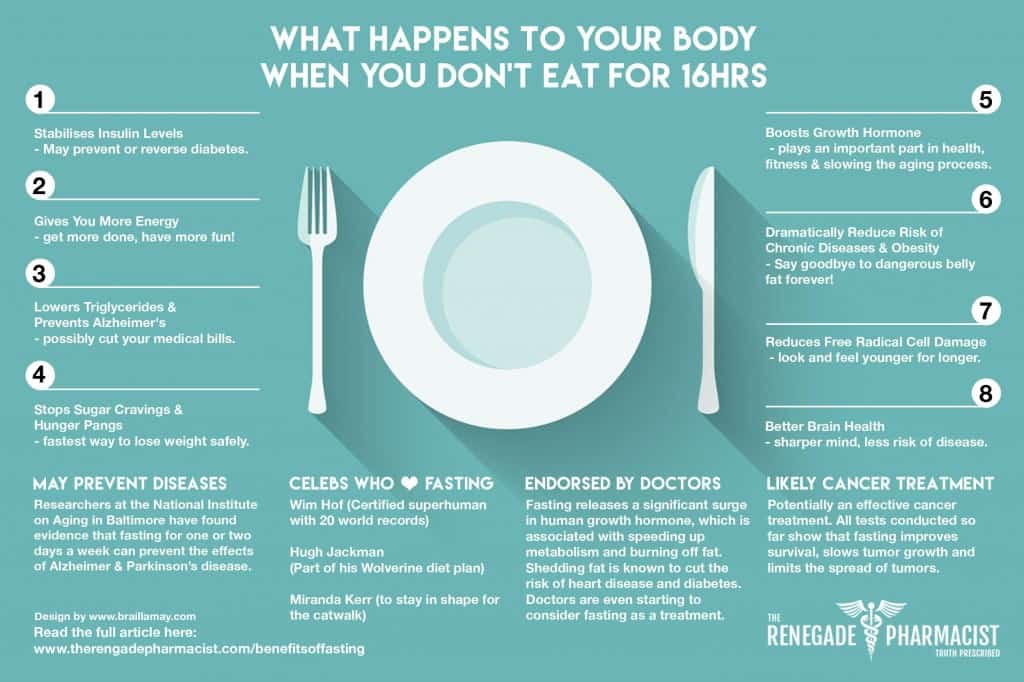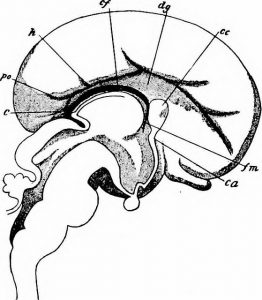You may have heard of the typical low carb or low fat diet, but have you heard of intermittent fasting? Intermittent fasting (IF) is a relatively new diet that has been recently growing in popularity because of its powerful, life-changing benefits for the body and the brain.
There are many diets out there that are complex and intimidating to follow; however, IF keeps it simple.
What is intermittent fasting and how does it work?
IF is an eating pattern where an individual cycles between periods of eating and non-eating. There are many variations of IF that contain different fasting and non-fasting timeframes. Which variation an individual should use is based on their personal preference and their lifestyle/goals. Compared to other diets that require you to limit your calories, IF requires you to cut out the entire meal itself. With IF’s unconventional dieting approach, this makes IF easy to follow for the average person. This has contributed to the diet’s rise in popularity as well as its benefits in body composition and the brain.
Why should I try this diet? What are its benefits?
There are many benefits with intermittent fasting. Below are some of the most important ones that separate this diet apart from others.

Source: The Renegade Pharmacist
IF alters the function of cells, genes and hormones
When the body is in a fasted state, the body undergoes physiological changes such as changes in hormone levels. This allows the body to use stored fat as its main source of energy. Furthermore, insulin blood levels decrease which helps with fat burning. The human growth hormone (HGH) also gets elevated during fasting. Elevated levels of HGH further increase fat burning, muscle gain and other health benefits. As a result of decreased insulin levels and increased HGH, our cells undergo cellular repair processes and removes toxic waste from cells. This in turn can help prevent cancer.
IF benefits the brain
Previous studies have shown that IF improves certain metabolic features that are important for mental health. This involves lowering of blood sugar levels and insulin resistance which is important in fighting against certain diseases. Fasting up-regulates the secretion of brain-derived neurotrophic factors (BDNF), a protein that is involved in cognitive functions, memory and overall brain health. A study that experimented with rats showed that IF can elevate the production of new nerve cells which positively impacts the brain. Secretion of BDNF also contributes to lower chances of mental disorders such as depression and other brain conditions such as Alzheimer’s disease. Furthermore, a study involving animals has shown that IF prevents brain damage caused by strokes.
IF can lower the risk of Type 2 Diabetes
As mentioned earlier, fasting reduces insulin. The reduction of insulin levels ultimately lowers type 2 diabetes, a lifelong disease that increases the production of insulin beyond healthy levels. A study comparing IF to calorie restriction diets showed that IF has a stronger impact on lowering insulin levels and lowering blood sugar levels in the body. Collectively, studies have shown that IF can serve as an efficient protection mechanism for people at risk of type 2 diabetes.
IF can improve heart health
Today, heart disease is the leading cause of death in both men and women. It is still not well known whether IF can improve heart health due to the limited amount of studies out there. Emerging studies on the effectiveness of IF and heart disease are slowly on the rise.
Below is a video from the Intermountain Research & Medical Foundation discussing their findings on heart disease and IF.
Source: IntermtnMedCtr/Youtube
Intermittent fasting comes with physical and many mental health benefits that sets this apart from other diets. Why diet focussing only on physical health when you can also improve mental health and focus on bettering your longevity?
Make a change where your future self will thank you.
– Aron Ha










